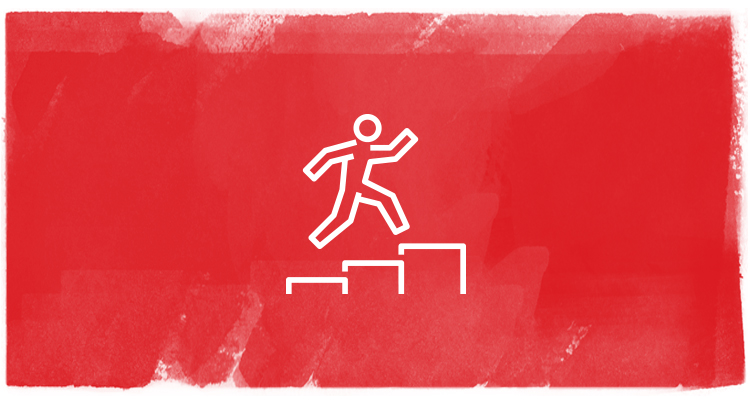By Jacqualyn Summervill

A whiny millennial explains how to get more from your hardest striving employees.
While there are many types of overachievers, I’m talking specifically about those who got straight As for the sake of the A. The ones who, as children, were motivated by gold stars. Going above and beyond has the same physical and mental effects as a drug to these employees. They’re looking to you for their next fix.
During school years, there is no shortage of positive, encouraging feedback for these overachievers. Teachers see tests and reports as a critical part of their job to identify the needs of students and encourage them. But in the workplace, this isn’t always the case. There are fewer opportunities for positive feedback, particularly if they have routine duties and not many special projects.
Even worse, there are managers and co-workers that subscribe to the “always make them believe there’s room to improve” theory. Never give a 5 out of 5. Don’t baby them. Tell them what’s wrong and they’ll be better for it. Pressure makes diamonds. While this may work for those who are motivated by hurdles and barriers, it is an absolute killer to those who simply enjoy going above and beyond and thrive under approval and recognition.
I once had a manager who openly told me I was getting 4s instead of 5s on my performance review because 5s wouldn’t give me anything to shoot for. Even though he thought I did an amazing job, and followed that statement with a very fair raise, I still left feeling deflated — almost hopeless. The message I received was: no matter how hard I worked, I’d never get my A.
That message is TOXIC to overachievers. It’s a green light to stop trying. To be clear: I am not advocating they be coddled or constantly showered with praise, but far more effective ways to motivate and critique them do exist.
Don’t tell them the right direction — bait them.
You’ll get way more than you asked for by telling them things you’d love to see rather than simply pointing out problems. Acknowledging what you do like is key in situations where criticism is necessary. Feed their need for a little recognition and provide suggestions for directions they might take the project. A typical overachiever will take this bait and run with it.
Give them small wins to keep them on track.
Being an overachiever is a double-edged sword. It makes staying on task difficult sometimes, because the second you see something that could be improved, it’s almost painful not to run down the rabbit hole. Routine check-ins give you an opportunity to acknowledge progress while ensuring the carrot dangles in the correct direction for your overachiever.
Just like love languages, there are motivation languages.
The way you learn isn’t how everyone else will learn. The way you are inspired will not always resonate with others. To get the most out of people, it’s worth taking the time to ask and understand what motivates them individually, and follow through accordingly.
Don’t mistake confidence and initiative for arrogance or self-fueling internal motivation.
Overachievers know what they are capable of and tend to tackle additional tasks without much input or prodding. Their history of successful, voluntary projects has taught them that most peers won’t want take on work they don’t have to do, and that they don’t necessarily need others’ ideas to succeed. This does not mean they don’t want input or that positive feedback won’t spur them onward.
Teach them that the workplace is not like the group projects they are used to.
These are go-getters who will run with new ideas and won’t always ask for advice, or gracefully accept it. It’s a coaching opportunity. I was lucky enough to land somewhere early on with someone who taught me to ask for input, even if I didn’t think I needed it, even from people not directly on my team. It’s taken time and patient leadership for me to recognize the office is not like my group projects back in school. I don’t have to do all of the work, and there are a lot of people who want to contribute.
Try not to view their needs as a bottomless pit of annoyance.
I was not being facetious when I said going above and beyond is like a drug to overachievers. They need their efforts recognized. This can either be harnessed, to your benefit and their success, or ignored, in which case you’ll benefit until they inevitably look for a more suitable fit elsewhere. Yes, it will take a little extra work as a manager. But just like anything worth having, it’s worth your time and effort. Don’t go overboard, so that every interaction feels like an empty glorification of even the mundane. An acknowledgement is simply that — an acknowledgement.
Paying for performance, career pathing, benefits — they’re all tools for establishing clear expectations, corresponding rewards, and motivating employees to meet or exceed those expectations. But the foundation of motivating, giving positive feedback, and critiquing on a day-to-day basis must be set before any of these can truly be successfully implemented, particularly for overachievers. All the rewards in the world won’t satisfy their most basic needs for acknowledgement and positive encouragement.
Back to Blog







